This morning I awoke at 6:00, to find
(editor, Radio Silence), had broken his silence. Submitted his first Substack post for at 4:44 am.It’s about fatherhood, among other things. But fatherhood first.
Unlike yours truly, Stone knows how to write a Substack post—short and sweet. And I do mean sweet. In honor of his family and old man. On a second strike, unlike me, Dan was obviously prepared—to release a story in remembrance of his childhood summer vacations in the wilderness of southern Colorado, with his mom, pop, and sis—on Father’s Day morn.
My family, the three of us, took a similar excursion into the wilderness last summer, up the Wallowa Mountains. On horseback, near the border of Eastern Oregon and Idaho.
Like Dan and his old man, we fished for brook trout in crystal streams and rainbows in alpine lakes, grilled and ate our catch stuffed with wild foraged onions. Took our water from a cool mountain spring every morning.
“Cool, clear water,” in the words of Bob Nolan. Saying, “Dan can’t you see that big green tree, where the water’s flowin’ free? It’s waitin’ there for you and me… And water, cool clear water.” Everything was natural.
What we put in our bodies…
And where it came out (save for the chair and shovel).
It was a medicinal experience. Healing state of mind and nature, especially for our nine-year-old son. Went from screens and video games to playing with horses and hatchets. Hacking at firewood, hurling the short-axe at trees, and making it stick. End-over-end and “smack!”… into the cedar.
His daddy’s not exactly “an outlaw,” but he’s a wanderer by trade. Didn’t “teach him how to pick and choose,” but how to throw the blade… to pilfer the words of another songwriter whose spell I’ve been under lately.
Here he is: the boy who leads the man. Looking back at Pop to capture a moment.
With the help of some amiable horse people—centaurs, cowpokes—we packed-in our gear strapped to mules. “Ol’ Dans,” as people used to call their half-horse, half-donkey, the mule.
“Keep a-moving Dan, don’t you listen to him Dan, he’s the Devil not a man. He spreads the burning sand, with water”—Bob Nolan again, talking to his mule-horse-and-self, seeing desert mirages of “Cool Water.”
Looking back through the sand, these photos are like thirsty hallucinations. Old memories. Wet tears.
Family’s no longer a threesome. I’m a single parent.
On the third and final strike, unlike me lately, Dan’s clearly and consistently a great father—Dan the Stone, not the Mule. Judging by his Substack name, what he’s written, and his first post, illustrated by his kids.
I’m sure he struggles, like all fathers, “in waves” from time to time, as
described the ups-and-downs of parenting to Dan’s wife , on her own Substack.Always think Dan’s wedded to Sonic Youth when I misread that name. Kim Gordon instead of Gooden. Point is, they’re both Goodens, Dan and Kim, good parents, from what I can tell. Weathering the waves and storm.
Like Dan’s father in his story, if you read it: “The grizzly bear is right outside the tent.” Dad leaves mom behind, takes his six-year-old son Dan and nine-year-old daughter even deeper into the wilderness for one night, away from base camp. Where they pitch a pop tent barely big enough for the three of them, and get hit by an electrical storm.
Between the nocturnal thunder, his father hears a large four-legged beast prowling around the tent. He’s armed with M-80 firecrackers and a buck knife in case of a confrontation with a grizzly bear, but he knows that’s not enough to scare away a seven-foot, six-hundred-pound monster. And he probably doesn’t wanna wake up the kids trying.
I was worried about lions and tigers and bears myself, last summer. Mountain lions and bears, anyway, in the Wallowas. Eight miles in from the trail head, which was an hour from the nearest paved road, then another hour’s drive to the closest rural town.
Deep in the canyons, high in the mountains.
Every night we heard horses stalking past our tent, after the cowboys-n-girls put the mules and horses out to feed and pasture in the valley each evening. The clanging bells attached to the more ornery and wayward horses in the distance, and the eerie sound of mules screaming in the dark—sound like wild banshees.
Never met a cougar or a bear.
Neither did Dan’s old man. Woke up to find a cow munching grass next to the pond they were sleeping next to. A rancher let her out to feed. And that’s Mr. Stone’s metaphor for parenting.
We set off into the world with our kids, supplies on our back and a pocketful of firecrackers, hunting for adventure and beauty and wisdom. And then in a flash, we find ourselves huddled together in a flimsy pup tent as a storm rages around us and a ferocious beast prepares to tear us limb from limb. We grip our buck knives, ready to fight to the death for our children, yet we never feel prepared enough. But each storm passes, and the beast outside is most likely a wandering cow, anyway.
I’m a single father now and I’m struggling. Most of all with raising him right, keeping my son out of the darker corners of the digital world I’m writing from right now, and giving him a proper education. The public schools in town have failed on that front ever since the pandemic.
My old “old lady’s” about to drop my son off with me for Father’s Day in a quarter hour, and I’m trying to get the words out before he arrives. Before I’m tempted to let him wander off into the metaverse for a few more minutes so can I selfishly finish scribbling.
So here’s to the fathers who’ve done their best to give their sons and daughters a proper education in the ways of this old world.
Thanks to my own.
Here’s to Dan Stone, and his.
, who compelled his sons, when they were younger, to read the classics, and tomes of dense modernism well beyond their reach and understanding, to teach them the value of struggling to get there. , whose black father grew up in 1940s Galveston—young Williams says there was actually more intercultural exchange in that town than contemporary narratives account for, but still—Jim Crow Texas. His father found a discarded box of books on the curb one day. One of which was The Story of Philosophy, by historian Will Durant. Old man Williams picked it up, read it, learned it. Inspired by Durant, and Plato, he opened his own neighborhood Academy, in his home. Taught folks in the neighborhood as well as himself, for free. And he taught his son, who’s now a successful author, public intellectual, and journalist.You can read that story by the younger Williams in the New York Times. Where he describes taking his seven-year-old daughter to the original site of Plato’s Academe, in Athens. To teach his daughter, and younger son, like his father taught him.
Galveston, Texas, is the beach town where two thousand U.S. Army troops arrived on June 19th, 1865. To inform the black residents of that state they’d actually been free for two trips around the sun, without being told about it, two years after the Emancipation Proclamation was signed in 1863.
I know about Juneteenth, always have. Happens to be my birthday, and I was born and raised in Texas. In Houston, an hour up the road from old Galvez—but I didn’t know that’s where government troops originally landed. Heard that on the Nelson George Mix Tape.
June 19th also happens to be the date of the first Father’s Day, 1910. Inspired by the daughter of this man, William Jackson Smart.
Smart was from Arkansas, and enlisted in the Confederacy. Until he was captured, and joined the Union Army. Veteran of both sides of the Civil War. Wound up in Spokane, after his second wife died, raising five sons and one daughter by himself.
Smart was two-times a widower. Had five kids with his first wife before she died, who were already grown by the time he had six more with his second, and then she died. On top of that, Smart’s first wife was a widow herself, and brought along three children from her previous marriage with her. That makes eight children with the first wife, six with the second, for a grand total of fourteen. Reared by Mr. Confederate-Union hopper William Jackson Smart, fourteen kids, all raised at one time or another as a two-time widower, alone.
I got one son. Plus, I never joined the Confederacy. Feeling better already.
Smart’s only daughter from the second marriage, Sonora Smart Dodd, hatched the idea for Father’s Day one morning in 1909, in a church in Spokane, attending Mother’s Day services in May.
If mothers had a calendar honorarium, she thought, why not pay thanks to a selfless single father of six siblings like her dad? Or for that matter, a two-time widower who cared for fourteen children over the course of his complicated life?
By June 19th, 1910, a year later, Sonora Smart Dodd convinced her congregation to cobble together a special Father’s Day service. She’d petitioned the Spokane Ministerial Alliance for a June 5th memorial service, the date of her father’s birthday.
But the Ministers were running late. Probably had kids of their own. So they settled on Sunday June 19th.
Father’s Day was started by a Smart woman, a grown-up daughter in honor of her father. Mother’s Day, which convinced Sonora Smart Dodd that fathers deserved their own day of recognition, was established two years earlier, in 1908. Also by a woman. One who went unmarried and never raised a child her whole life.
But her mother did, and when she passed away in 1905, her daughter got to thinking about all the sacrifices she’d made. Both were named Anna Jarvis. The younger, single, childless Jarvis, with financial help from the owner of a Philadelphia department store chain, a man by the hilarious name of Wanamaker—sounds like “Widow-maker,” or “Wanna Make Her,” like maybe he was courting Ms. Jarvis with financial incentives—organized the first official Mother’s Day celebration at a Methodist church in Grafton, West Virginia.
I’m being specific about names, like “Wanamaker” and “Grafton,” because they’re portentous. The real “Graft town” turned out to be Philadelphia, where on the same inaugural day in 1908, thousands of people flocked to one of Wanamaker’s department stores, for a big “Mother’s Day” event. Sure that was a big cash cow, for Mr. Wanna-maker some money.
I always considered both parental calendar dates to be Hallmark holidays, dreamt up like Rudolph the Red-Nosed Reindeer and marketed by Montgomery Ward. Turns out the founding sentiment is a bit more poignant, especially for Father’s Day.
But that’s not the end of the story.
Anna Jarvis, childless single woman who started Mother’s Day, rightly argued that most national holidays at the time were male-biased. She started a massive letter-writing campaign to newspapers and politicians, trying to establish what began as a West Virginia Methodist church service (and a dept. store sales event), as a national holiday. In 1914, she succeeded, and President Woodrow Wilson decreed it a national day of recognition.
By the 1920s, she was disgusted with how the holiday she’d established to honor her mother had been commercialized by card makers, florists, and merchants like Mr. Wanamaker. She spent the rest of her life, and most of her personal wealth, on legal fees and law suits against the use of the words “Mother’s Day” for commercial purposes. By time she died in 1948, Anna Jarvis disowned what everybody else was trying to own, and denounced the holiday altogether.
Sad ending for the beginner of Mother’s Day.
In 1916, two years after he signed Mother’s Day into effect, Woodrow Wilson attended a Father’s Day service in Spokane, WA. But it took another 56 years before it was officially recognized as a national holiday.
Sonora Smart Dodd, a skilled poet, artist, children’s book author and, oddly enough, funeral home director, petitioned for her father’s memorial to be signed in presidential ink, until she was 90 years old.
In 1972, Richard Nixon finally signed a Congressional resolution marking the third Sunday of every June a national holiday, in honor of Sonora’s deceased father. Sonora followed after her dad six years later.
Sad and beautiful stories, with sad and happy endings. In the words of James Brown—That’s Life.
So Happy Father’s Day, fathers. And thanks to the woman who got it all started, and nearly died trying, for her father’s sake, despite his difficult history.
Never give up, that’s moral of Sonora’s story, no matter how it much it smarts to be exhausted and unsuccessful. And as for fatherhood, do your best, whatever mistakes you make and whatever life throws at you. When you slip-up on the pass and feel like a horse’s ass, keep-on plodding.
In the words of that country singer, talking about his mule and his self…
Dan’s feet are sore, he’s yearning for, just one thing more, than water. Cool, clear water.
Like me I guess, he’d like to rest, where there’s no quest, for water. Cool, clear, water.”
No matter how tiring, sore, or scary it gets—weather the storm. Never mind the howling beast outside the tent, it’s probably just the side of a cow, an ass of a horse, or the wailing of a mule deep in the night.
“And with the dawn, we’ll wake and yawn, and carry on, for water. Cool clear water”
In the words of Bob Nolan, best sung by Hank Williams. Water being sublime peace, perfect parenting, or whatever unattainable virtue you’re seeking. The thing is, carry on.
Something carries us safely over the waves and through the mud. Keep up the quest, and give yourself a rest. At least for today, Daddy-o.
Gotta go. Somebody’s knocking at my door, and it sounds like he’s got tiny fingers.
Got a song to sing him, and a couple stories to tell.





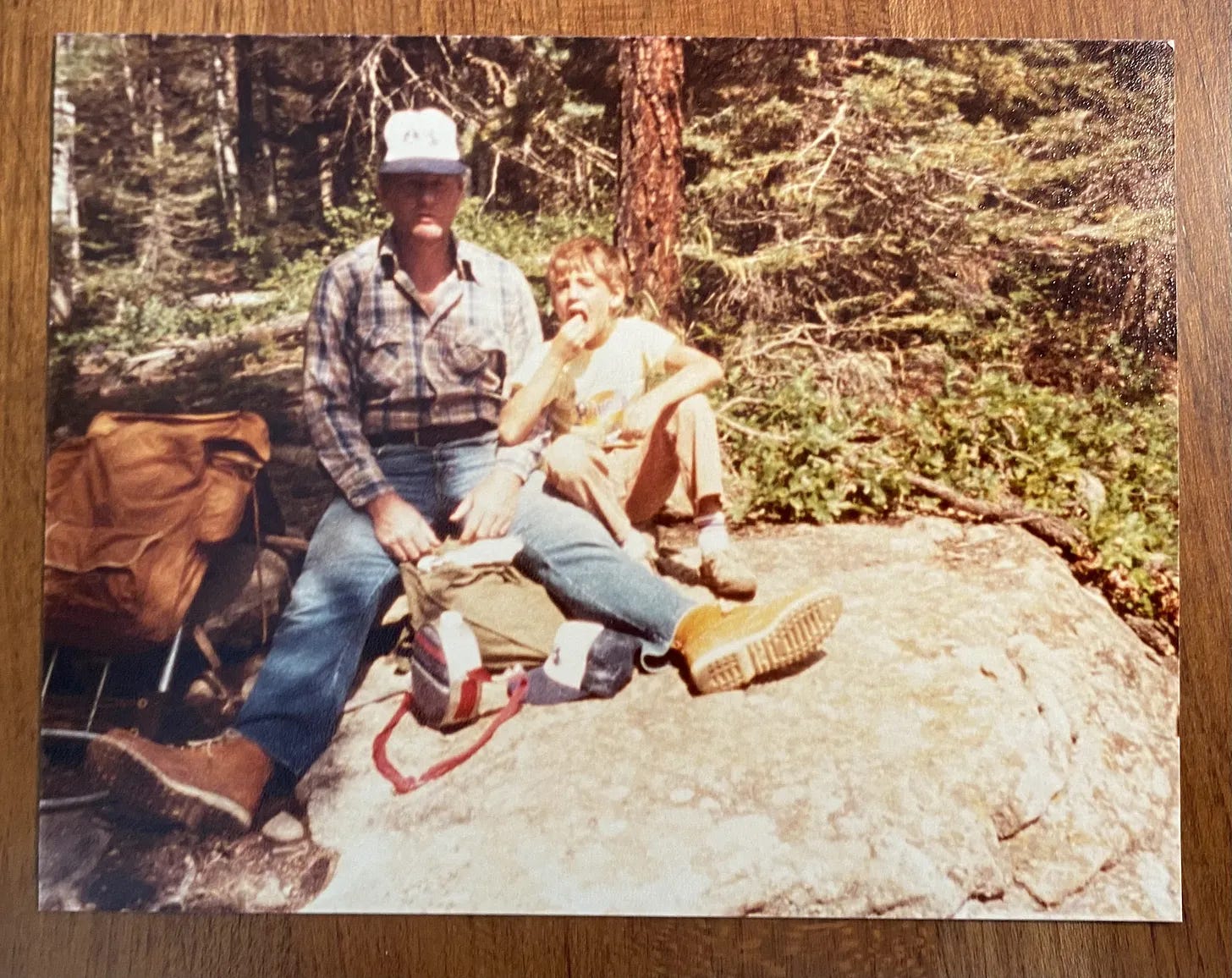
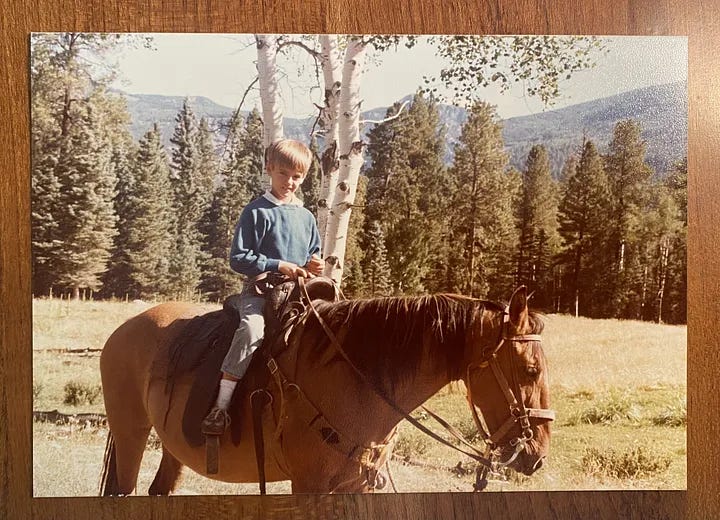
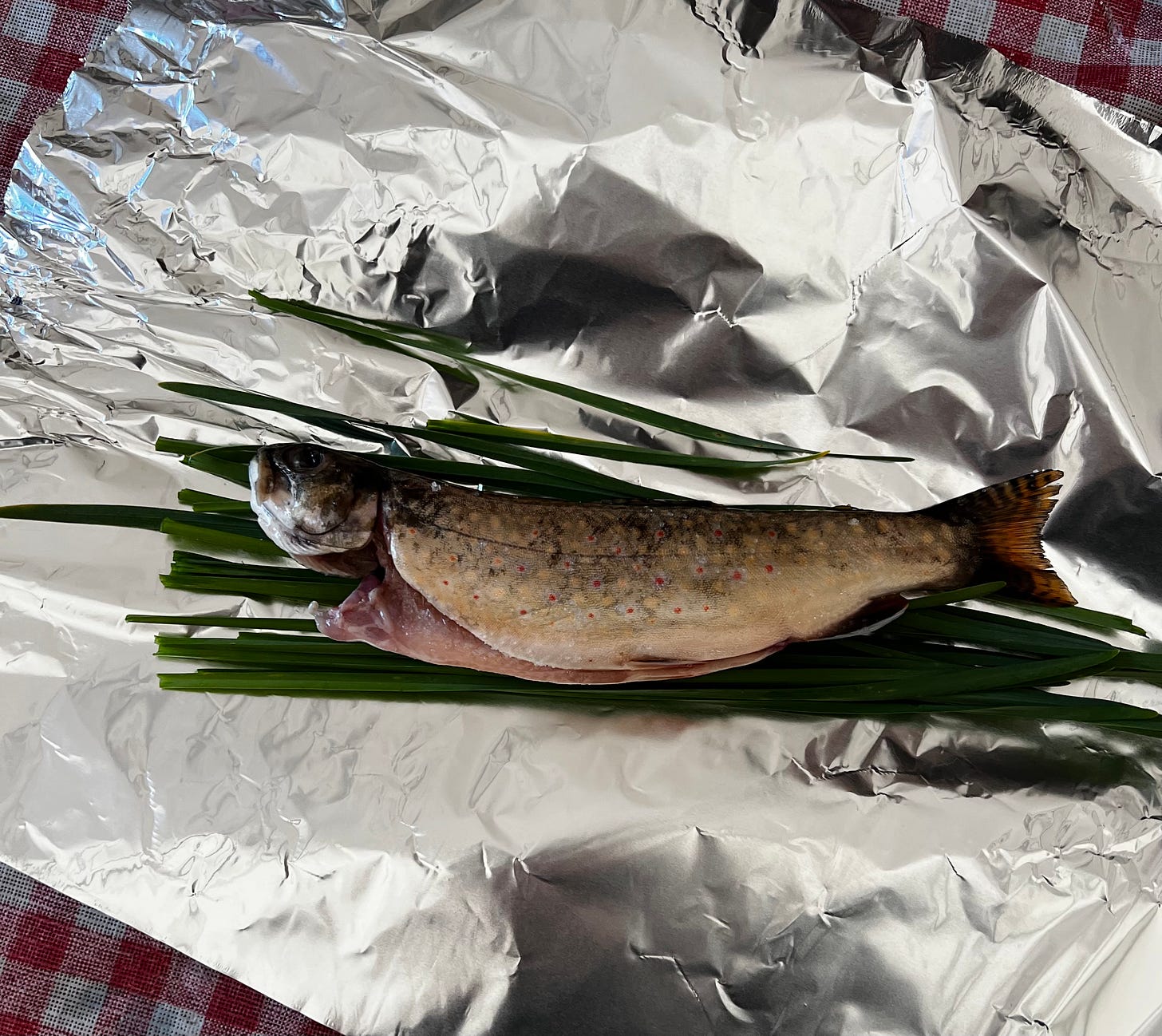
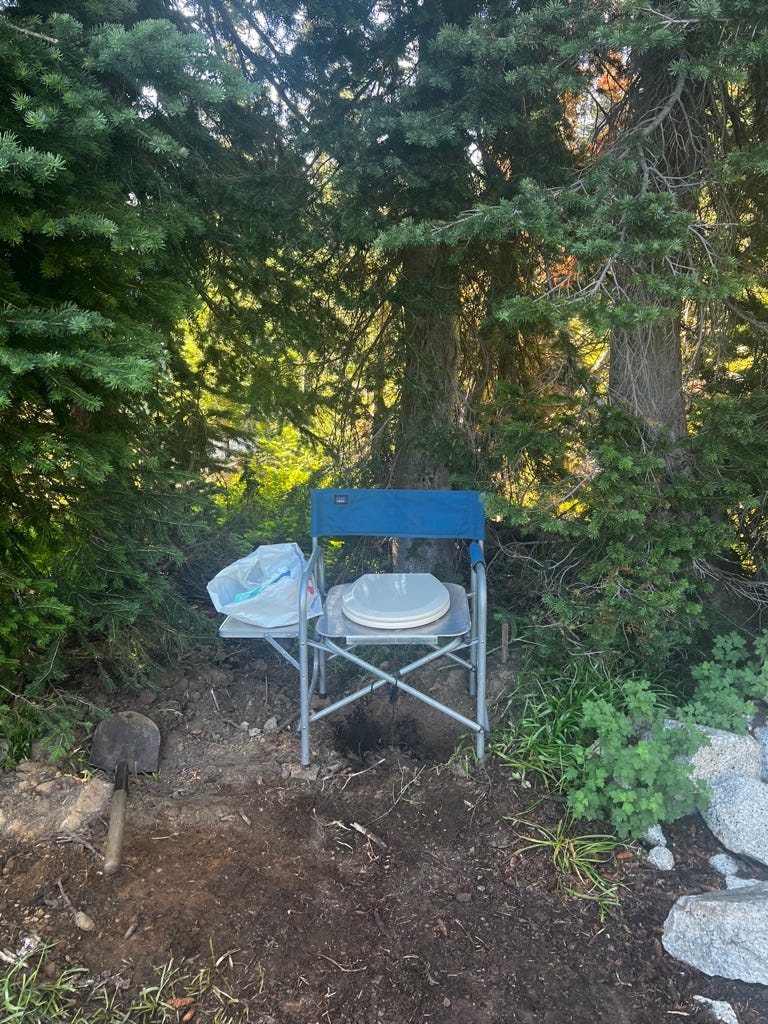
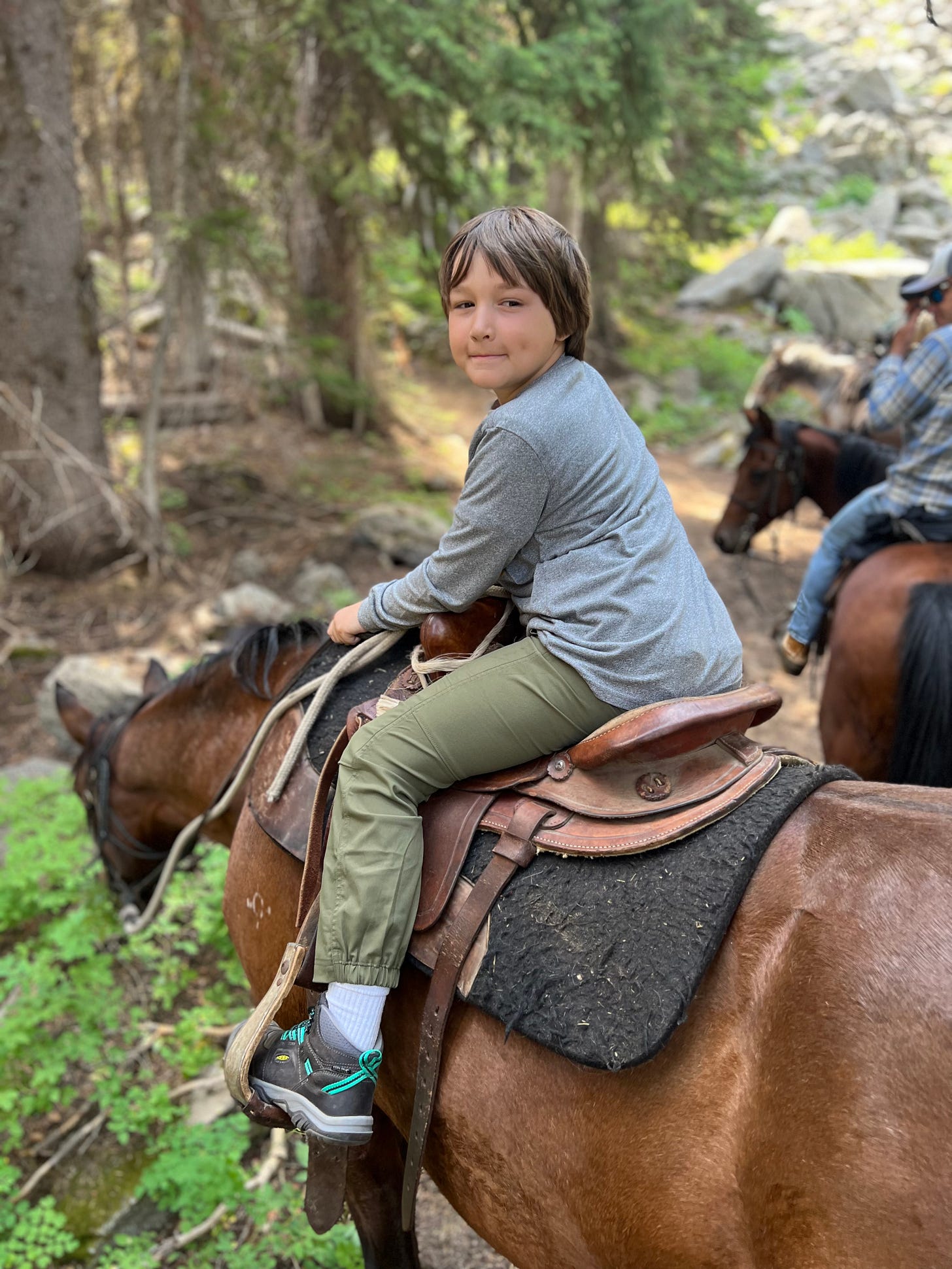

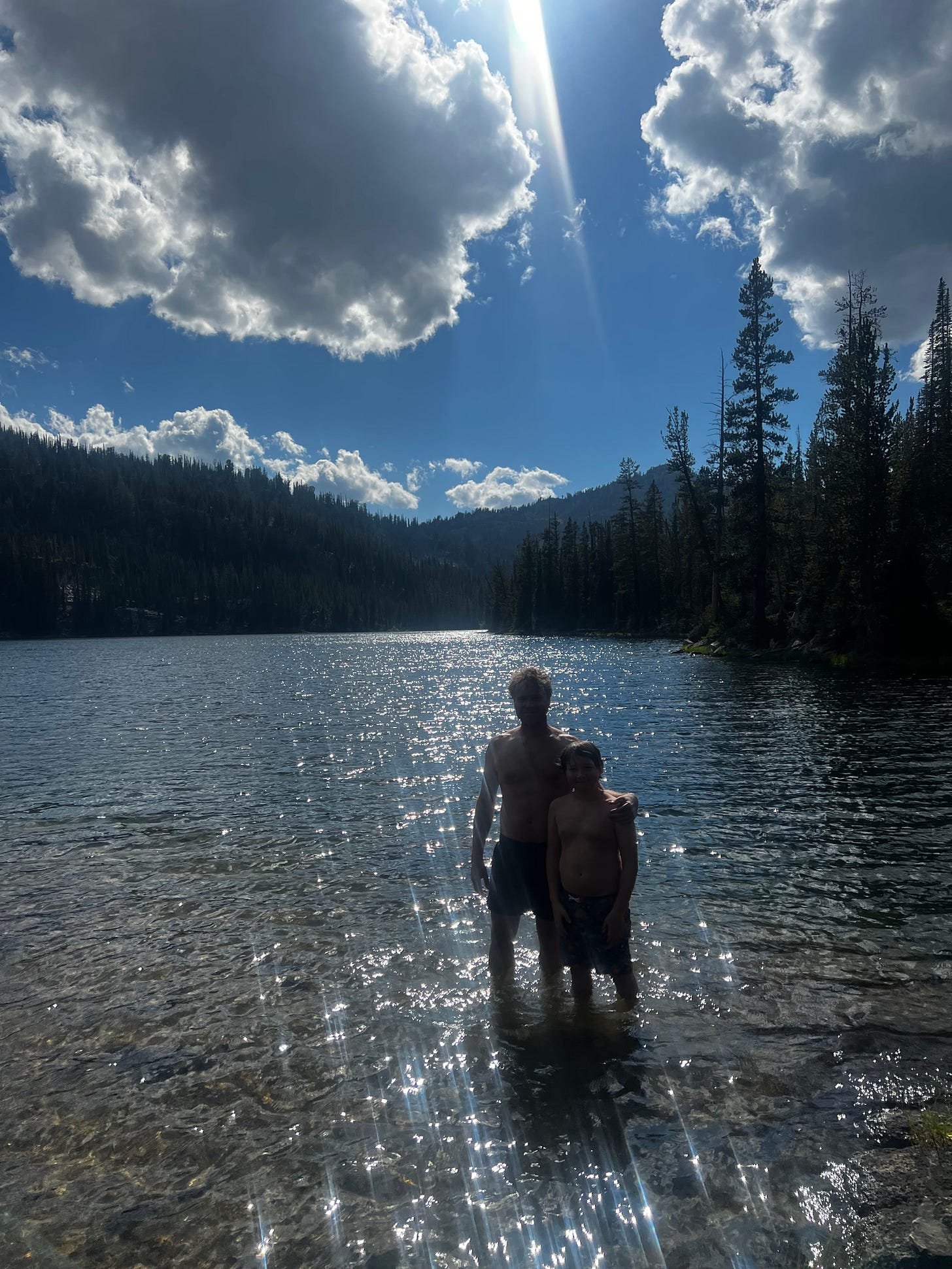
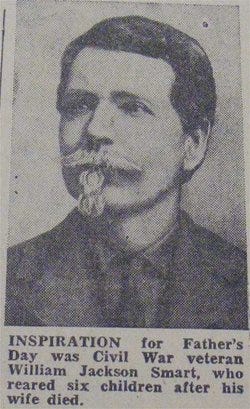
Good stuff, learned a lot.